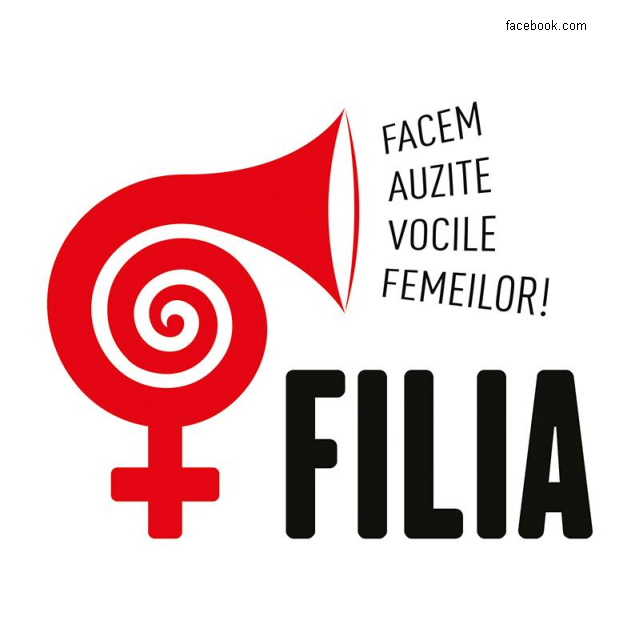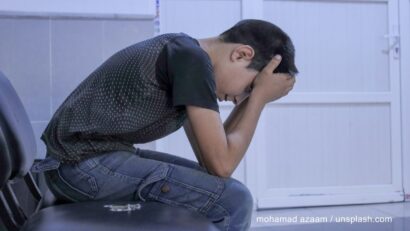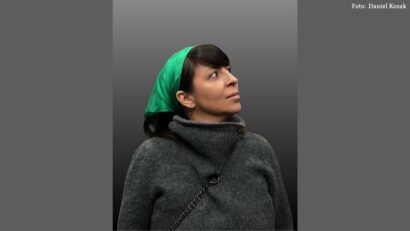Gender Equality in Romanian Society
Discrimination against women is an issue still facing Romanian society

Corina Sabău, 02.08.2017, 13:06
In 2014, the media gave extensive coverage
to an extremely serious case. An 18-year-old girl from Valeni in Vaslui County,
eastern Romania, was raped by seven young men. After the magistrates ruled for
the arrest of the aggressors, the reactions of the community were soon to
appear. Paradoxically, there were quite a few people who sided with the
aggressors, saying the victim destroyed seven families and she had
instigated the boys to rape her. Sexist and gender discriminatory attitudes
are however present in higher circles as well, even in the European Parliament,
where a Polish MP said women should earn less than men, because they are
weaker, smaller and less intelligent. A similar statement was made by a
prominent Romanian neurosurgeon and politician who said women are not made for
surgery. And, just because in March women usually benefit from some extra
attention, several brands came up with surprises. One of them was offered by a
famous bakery chain, which promoted specialities such as Croque Maid and
Croque Monsieur.
Andreea Braga, from the FILIA centre, an NGO which fights
gender inequality through activism, advocacy and research, explains:
I think all these things are possible because we are uneducated on the issue,
we do not have an education to promote gender equality, the respect between
women and men, the history of feminism, women’s contribution to society,
everything that should make us aware of how toxic discrimination is. Apart from
this type of messages sent by opinion formers, we also identify more
conservative attitudes, which infringe upon women’s rights. It is the case of a
recent march against abortion, which was staged in many cities across Romania
and which publicly stigmatised women for their right to make decisions relative
to their own bodies. Such events show us that we haven’t learnt anything from
Romania’s history. We shouldn’t forget that abortion was banned by the
communist regime and over 10,000 women died because of that, according to
official data. It is very clear that these conservative values are now
infringing upon women’s rights and, furthermore, we lack an alternative at
educational level. We have laws, we have a Constitution which says we are all
equal, but in reality- and when I say that I also refer to statistics- there
are many inequalities.
According to
statistics, one in four women has been physically or sexually abused by her
partner at least once in their lifetime, and, according to recent reports
issued by the Public Ministry in 2013, 2014 and 2015, the number of victims is
on the rise, by the year. Furthermore, if we take a look at the labour market,
women in Romania are paid less than men and they are less promoted than men.
Romania registers the third lowest female employment rate in the European
Union, according to data issued by the World Bank. As Andreea Braga has said,
the alternative to sexist mentalities and attitudes should be found in
education. However, according to the conclusions reached by sociologists after
having analysed over 1,600 textbook illustrations, these images do not seem to
favour gender equality, even if we refer to textbooks brought out in recent
years. Cosima Rughinis, the initiator of this extensive research, says she and
the other sociologists have taken into consideration two aspects: gender
representation and the way in which technology is featured in illustrations, in
relation to the two genders. In brief, the girls are beautiful, nice, dressed
up in pink, always holding a mirror or a doll. When they grow up, the doll is
replaced by a baby, and the mirror by a pot. Boys, however, are allowed to be
rebel, to hold a sword, to conquer the space or discover chemical formulae.
Cosima Rughinis:
The problem is
that reality is not like this. There are women who are electricians, engineers,
who have chosen to become taxi drivers. Textbooks do not reflect reality, they
narrow it. They do not help children see the world in which their mothers have
jobs. On the contrary, they present a distorted image or an interpretation grid
that does not match the world we live in. Textbooks should help broaden
children’s vision of the world they live in and encourage girls to have
aspirations. But, as I said, not only that these textbooks do not help
children do that, they don’t even help
them see the real world. We were not
surprised to see that in the old textbooks, but we didn’t expect to see the
same things in the new ones, published in the past years.
Illustrations are
supported by content. In order to change the content, and here we talk about
literature textbooks alone, those who make them should discover the fact that
there are women writers too, many of them contemporary. Here is sociologist
Cosima Rughinis again:
When we talk
about schoolbooks, inequity is omnipresent. On the one hand, there is this
generic cultural sexism that were are all faced with and which has not been
formally acknowledged in Romania. On the other hand, if we think of the structure
of these schoolbooks, they include literary texts from the 19th
century. Texts that were mostly written by men, from their 19th
century perspective. One potential solution would be for these textbooks to
take over pieces written by women, and some of these women should be
contemporary writers. In conclusion, besides sexist representations,
schoolbooks include a lot of patriarchal representations, which were a common
place in Romania one and half century ago. Look at the lesson on leadership in
the civic education textbooks. There you can see the gender difference.
Usually, with just a very few exceptions, all these books present boys as
leaders.
But how does 19th
century mentality match with the current legislation in force Andreea Braga is
attempting an answer:
We have a law
and a strategy on equal chances for men and women. However, as long as there is
no political will to tackle gender equality as a priority, we will not be able
to fix much. And when I say priority, I’m also referring to certain types of
violence that women are faced with, both in the public and in the private
sector. We are all aware of these issues, but they are always left outside the
public discourse. It is quite rare that we see debates on how to set up more shelters
for victims of domestic abuse, when there are 13 counties in this country where
such shelters do not exist at all. Or, we have legislative proposals that
encourage discrimination or job harassment, in the sense that when it first
happens, the aggressor only gets a verbal warning. It is quite obvious that, in
order to trigger a structural change in society, we need education first and
foremost and as early as possible. Also, we need politicians who are well
informed and aware of all these issues.






























